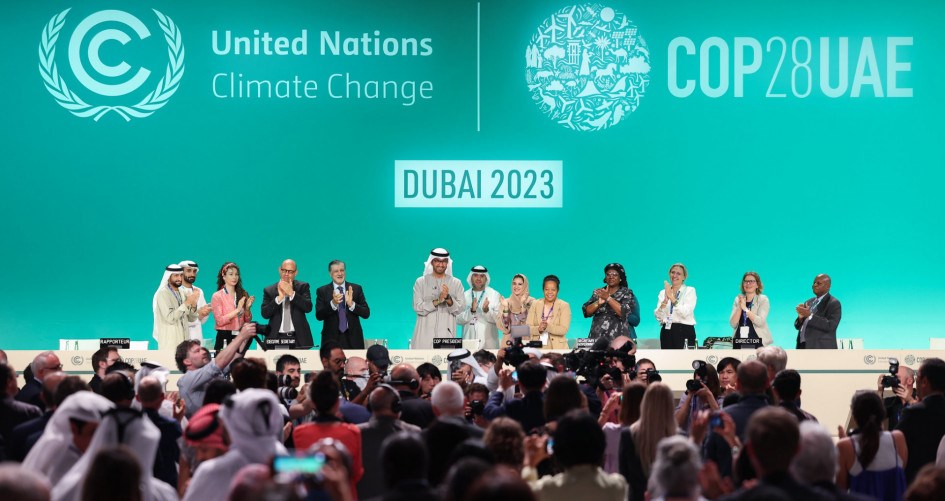The United Nations Climate Change Conference (COP28) wrapped today with the 198 participating countries agreeing on a landmark deal to transition away from fossil fuels.
Negotiations over the first Global Stocktake, a document that will be used to evaluate climate policy progress, pushed the COP28 summit into overtime yesterday when an initial draft was rejected for being "weak" and failing to include language about phasing out or phasing down fossil fuels. The updated text calls for the "transitioning away from fossil fuels in energy systems" and the acceleration of zero-emission technologies.
The stocktake has been called historic as it's the first climate change agreement with language on fossil fuels. Reactions have been mixed, however, with some saying the accepted deal contains a "litany of loopholes" and doesn't do enough to stop global emissions.
“Whilst we didn’t turn the page on the fossil fuel era in Dubai, this outcome is the beginning of the end,” said UN Climate Change Executive Secretary Simon Stiell. “Now all governments and businesses need to turn these pledges into real-economy outcomes, without delay.”
Chris Severson-Baker, executive director of the Pembina Institute, said in a statement it was unprecedented that all nations involved agreed there must be a move away from fossil fuels, and that the opportunities and challenges the energy transition represents to Canada can't be ignored.
"As an oil and gas producing country, all levels of government in Canada need to prepare our economy and workforce for a global decline in demand for oil and gas. Earlier this year, for the first time, the Canada Energy Regulator (CER) projected that in a future of ambitious global climate action, global demand for fossil fuels falls steeply, reducing oil and natural gas prices and Canadian production of those commodities."
Severson-Baker also called on the Alberta government to "lift its moratorium on renewable energy approvals" to help meet the agreement's target of tripling global renewable energy production.
Members of the Association of Small Island States have said the global stocktake needed to deliver a "course correction," but that it "sputters in significant areas."
"We must note the text does not speak specifically about fossil fuel phase-out and mitigation in a way that is in fact the step change that is needed. It is incremental and not transformational,” Anne Rasmussen, a representative from Samoa, said in a speech following the conclusion of the climate summit.
"We see a litany of loopholes in this text that are a major concern to us . . . It is not enough for us to refer to science and then make agreements that ignore what the science is telling us we need to do."
In a joint statement, Premier Danielle Smith and Minister of Environment and Protected Areas Rebecca Schulz said they were "greatly encouraged by the success of Alberta and Saskatchewan, and other nations and subnational governments, at COP28 in pushing back against the voices of those obsessed with accelerating the phaseout of sustainable and affordable energy derived from abated oil and natural gas."
The statement said that Alberta will demonstrate it can develop renewable and non-renewable energy production while achieving carbon neutrality through technology.
The agreement calls for tripling renewables and doubling energy efficiency by 2030. To do this,"regulation is required to ensure murky concepts like 'abatement technologies' deliver real climate progress," said Anusha Mata, senior policy advisor for independent climate change think tank E3G.
Though the stocktake document shows that the energy transition can't be stopped, it is only the first step, said E3G Policy Advisor Tom Evans.
"It is clear that not everyone is ready to admit the truth of what’s needed to avert climate disaster. The COP text shows the hard work that lies ahead: rewiring the financial system, driving action to vastly scale up renewables and energy efficiency, and crucially paying much more attention to adaptation which has been neglected, putting all of us at risk.”




